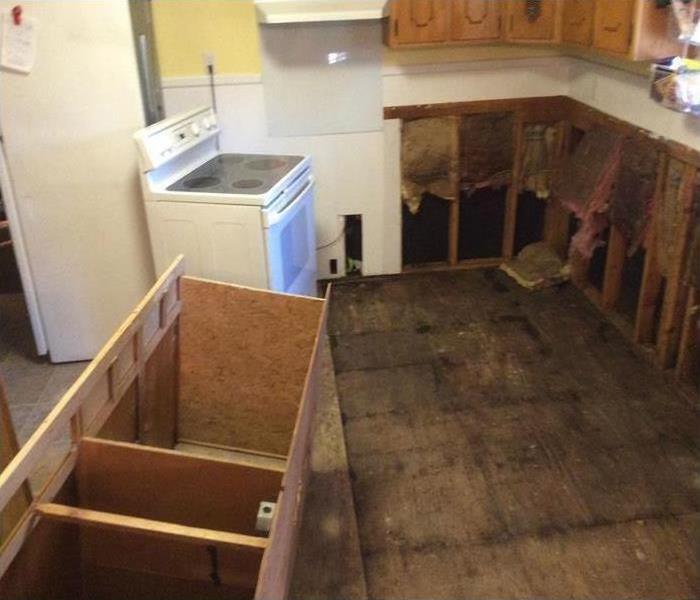Common Places Where Mold Grows - What Every Homeowner Needs To Know
5/26/2021 (Permalink)
What Every Homeowner Needs To Know
The thought of finding mold growth is enough to ruin any homeowner's day. Mold damage can ruin carpets, tile, drywall and even wood. Professional cleanup can cost $5,000 or more and most insurance plans don't cover it. The good news is that homeowners in Burning Tree, OK can take steps to secure their investment. The keys are prevention, early detection and knowing where to look.
Mold Grows Where It's Warm and Damp.
Mold grows most often in humidity greater than 50% and temperatures between 40 F and 100 F.
Mold can grow on a variety of materials, like:
drywall
paper
wood
fabric and upholstery
carpet
insulation
Where To Look for Mold.
There are three main causes of mold damage. Leaking appliances, fixtures and plumbing will saturate floors and walls. If not stopped, they will leave enough moisture to grow mold. Damaged exteriors let water into walls, attics and basements. Finally, flooding exposes home interiors to water and leaves materials damp. Flood cleanup usually requires professional water damage repair services.
Homeowners can find mold before it gets out of control. Flooding is usually obvious during or after the event. Still, homeowners should check crawl spaces and other areas where water can remain unseen. Homeowners need to inspect roofs, windows, doors and other exterior features for damage after storms. Checking the walls, floors and ceilings near appliances and fixtures for signs of mold is a good idea, too.
Preventing Mold in the First Place Is the Best Solution.
Some simple measures will keep mold from growing in the home. Dehumidifiers control moisture and keep humidity levels below 50%. Fixing damaged windows, doors and roofing as soon as possible after a storm will keep water out of the house. Finally, homeowners must clean up and dry out affected areas within 24 to 48 hours after flooding.
Knowing where mold grows is an important part of prevention. Homeowners don't have to wait until mold is obvious before taking action. Anyone can detect mold and mildew growth early and prevent mold damage in any home with the right simple actions.



 24/7 Emergency Service
24/7 Emergency Service
